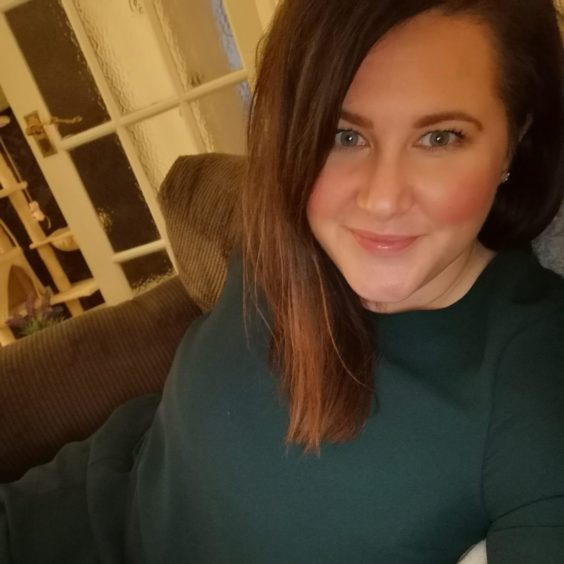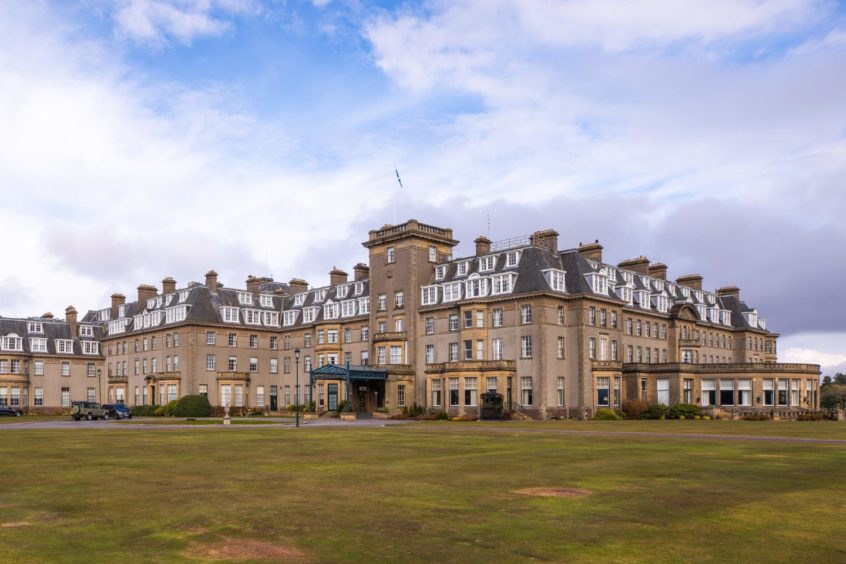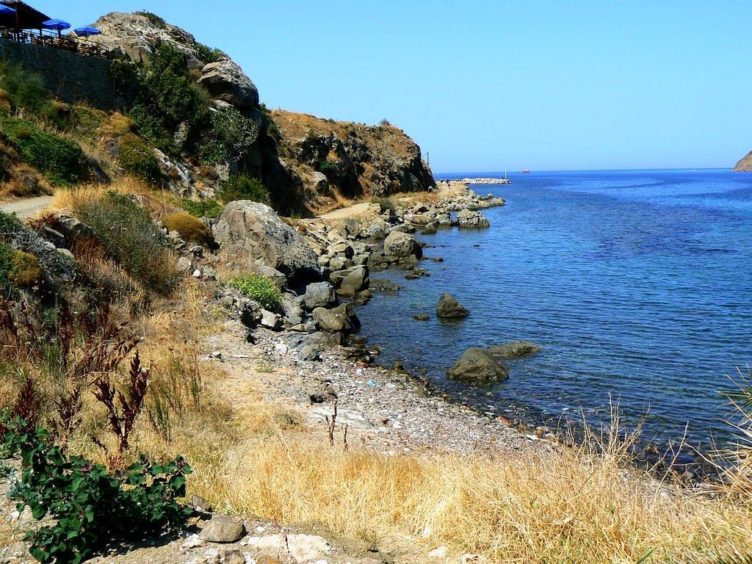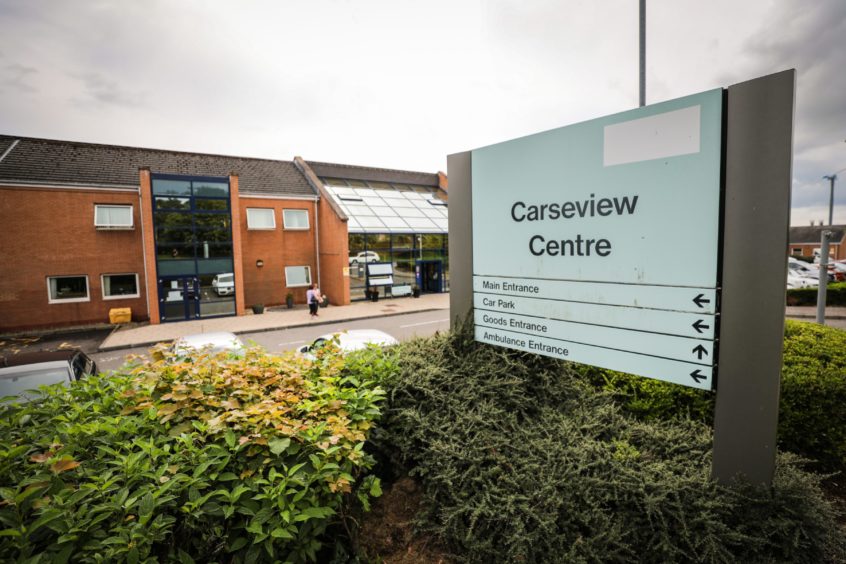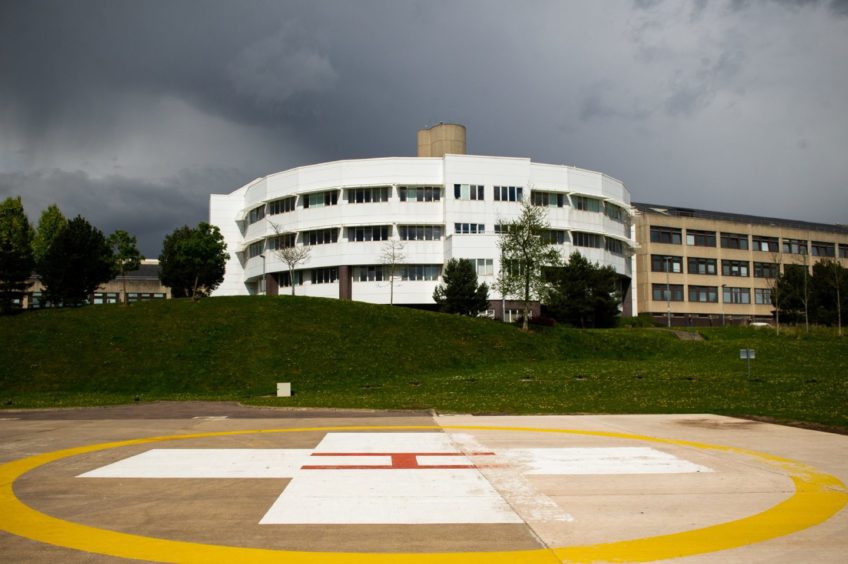Ninewells nurse Cheryl Smith has spoken of how she overcame a sexual assault that led to depression and an attempted suicide to target one of Scotland’s longest walks.
The 36-year-old, who lives in Stobswell, also fought a dose of Covid-19 that hospitalised her for two days in October last year.
Now Cheryl, a charge nurse in the Ninewells respiratory unit, is fundraising to hike the Highland Trail 550, a 550-mile route across north-west Scotland that takes in Tyndrum, Fort William, Fort Augustus, Ullapool and Rosehall.
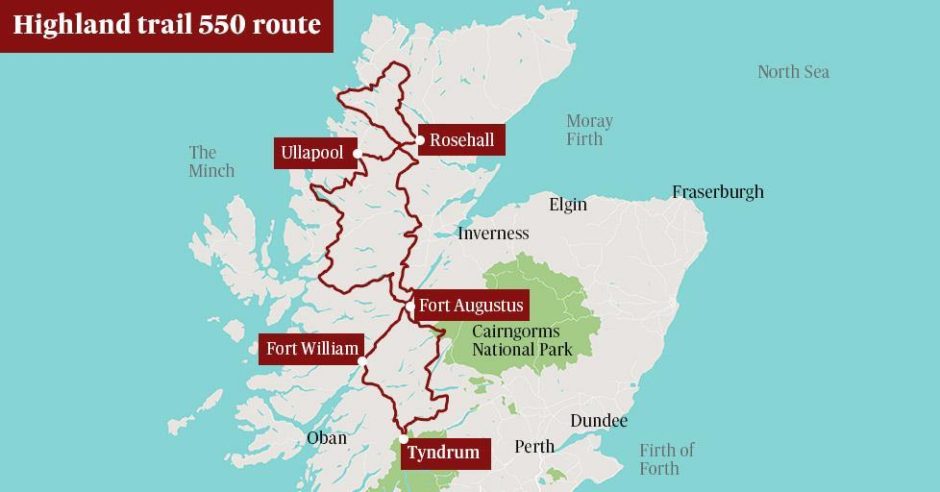
Cheryl, whose parents live in Blairgowrie, has bravely gone into detail about her mental health battles and says walking has played a big part in her recovery.
Early years and family
Cheryl describes her upbringing as “very ordinary with not much happening”.
The eldest of three girls, she was born in Chertsey and went to eight different schools across the UK due to her father, Martin, needing to travel with his job.
“I remember my grandfather dragging me up Helvellyn [in the Lake District] in the summer and I couldn’t say I enjoyed it,” jokes Cheryl.
“I almost hated every minute it until I finished – then I would feel amazing.”
The family eventually settled locally, which included a stint in Balbeggie.
Dad Martin was formally a a chef at Gleneagles Hotel and is now a delivery driver for Tesco in Perth.
Martin’s wife Pauline owns Confidence Driving School, based in Blairgowrie.
Cheryl’s two sisters are also in Perthshire. Donna, 34, lives in Perth, while Becky, 29, resides in Cargill.
Sexual assault
The incident that would change Cheryl’s life, and began 15 years of mental health problems, took place when she was 20 years of age in the summer of 2005.
She was working at a bar in the Greek island of Lesbos to earn some money ahead of starting a nursing degree at Dundee University the forthcoming autumn.
“I had just finished studying psychology at Aberdeen University. I was young and letting my hair down,” she says.
“The incident changed my life and it took a long time for me not to let it define me.
“I came home and went to the police. After the interview I said I was okay and thought I would be able to take my mind off it because I had the nursing degree to focus on.”
But Cheryl was not okay, and looking back she can now recognise how this came to the surface erratically over the next three years.
“Initially it presented in the form of anger – not something I am particularly good at dealing with, and nor am I now.
“That devolved into me trying to gain control of my reality so I developed a eating disorder and put my body through three years of horrendous turbulence trying to control my weight.
“It was a way of trying to control my thoughts.
“Over those three years there were odd moments when my mood was erratic.
“I did crazy things such as covering my mirror in the house. It was odd behaviour.”
Rock bottom
Cheryl may have initially been able to keep a lid on the memories of that incident in Lesbos, but three years on this strategy would prove impossible.
She had to relive the details of the incident for the criminal investigation into the alleged sexual assault, which eventually came to nothing because there were issues with translating her statement into Greek.
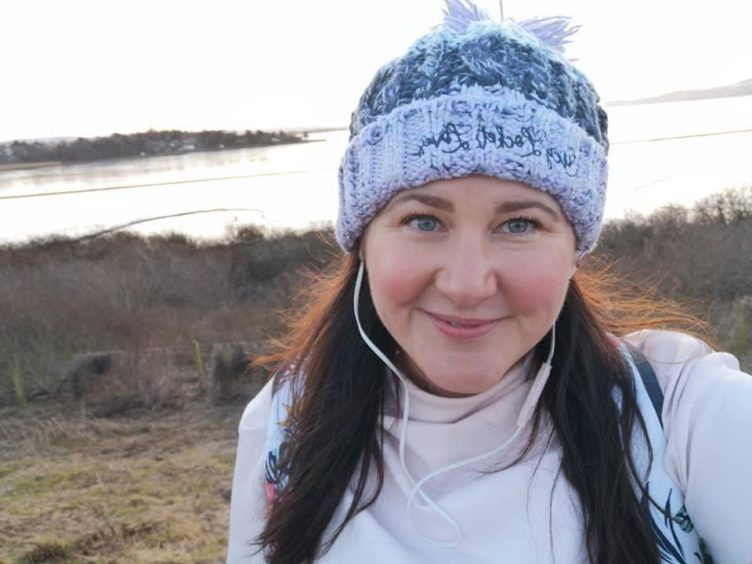
She was asked to go to Greece to testify but she just couldn’t. “At the time I couldn’t have gone back. I found it too difficult at the time.”
This stressful experience, combined with the strain of the final year of her degree, would prove too much.
“It all came to a head and I had a complete mental breakdown,” Cheryl says.
“It was actually an ordinary day but when I got home I hit rock bottom and felt suicidal for the first time in my life.”
Cheryl was now experiencing flashbacks of the incident in Lesbos. “I didn’t know how to pull myself from it and how to get help. I didn’t understand.”
She attempted to take her own life with an overdose and was taken to Ninewells Hospital.
Once the emergency had passed she checked in to the neighbouring Carseview Centre, which is dedicated to mental health, to continue her rehabilitation.
“At this point I started my mental health journey.”
Treatment
The two-week stay at Carseview left a lasting impression on Cheryl.
At first she was shocked to have been diagnosed with post-traumatic stress disorder (PTSD).
“I thought it was something you got when you were a soldier but, no, you can get it off the back of any traumatic event.
“I was assigned a psychiatrist, I had a psychologist and I started a lot of treatment to rebuild the thoughts I had developed on the back of the assault and made good headway.”
It was an eye-opening experience in other ways, too.
“I met some interesting people and remember at dinner people asked ‘what are you in for?’ It was as if they were in prison.
“One woman said she was there because she tried to kill her sister, but what struck me was how many ordinary people like me were there.
“There were so many people from different backgrounds who just didn’t know how to cope anymore.”
Relapses
Cheryl says that after returning home she soon overcame PTSD but was left with chronic anxiety and depression.
She suffered many relapses in the following years and was assigned a community psychiatric nurse to contact whenever she had an episode.
A number of treatments were attempted:
- Cognitive behavioural therapy (CBT), with a psychiatrist.
- Eye movement desensitisation reprocessing (EMDR), with a psychologist, which worked on memory disassociation.
- Confidence-building classes. “When I scraped away at my conference it was hidden by bravado, while other people’s was worn on their sleeves.”
- Medication. “Some meant I couldn’t even get up and function as a human, and some that made me quite euphoric at times.”
Cheryl recalls: “I was investigated for a lot of other mental health conditions amongst that as well.
“Fortunately for me I have a fantastic support network and and with a lot of hard work I was able to pull myself out of these episodes I was having. Some were darker than others.
“When I was in a good place I lived in fear that I would go to a bad place again.
“I lost a lot of friends. Mental health is selfish and I couldn’t see anything from anyone else’s perspective. I was the victim.
“It must be really hard to live with or be friends with somebody who is so negative.
“I cancelled plans at the last minute; on one occasion I could no longer be a bridesmaid. I became unreliable. It’s a selfish illness.
“But the main thing was that the right people stayed with me.”
The last episode
In April 2019 Cheryl experienced her ‘last episode’. She had a mental breakdown which culminated in her becoming a patient at Ninewells again.
She says she was “going through a second divorce and in the background feeling incredibly worthless, like I’d failed at something in life.”
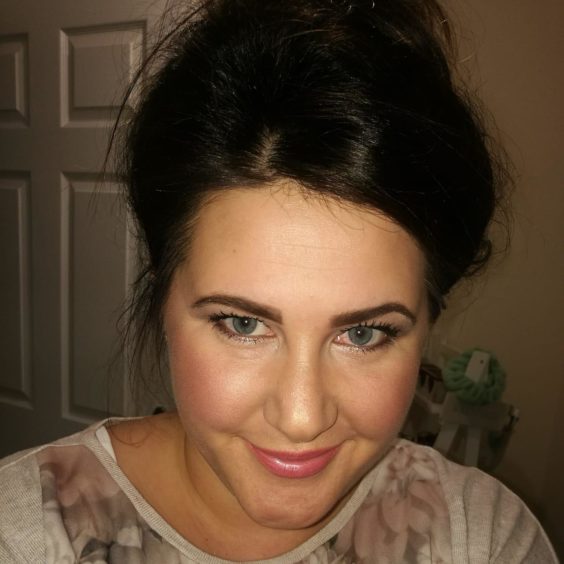
The event marked a significant turning point in Cheryl’s life.
“It was one of the best things that happened to me because from this point I really took responsibility for my mental health. I came out fighting.
“Overnight I said ‘enough is enough’. It took 16 years for me to get to that point.
“When I came out of hospital I came to the realisation that my real problem was not what had happened to me or my mental health.
“But really it was the fact that I had identified with it. It was the rhetoric I had. I had the full-blown victim mindset.
“I was Cheryl who had been sexually assaulted, Cheryl who had a mental health problem and Cheryl who was never going to amount to anything on the basis of both of those two things.
“Really, the key to me was realising that this was just my thought and how I was identifying with what had happened to me.
“There’s not a person here who hasn’t been through something traumatic, hasn’t had a horrible life event – some may have far worse and some maybe not as bad.
“But we all have periods of our life that are incredibly difficult for us and realising that I didn’t need to identify with it was really how I fixed myself – for want of a better term – of my mental health problem.
“And I now consider myself a very mentally well person. I can now say I will never need to use mental health services or medicine again. I have pulled myself out of my mental health problem.”
Mindful therapy
Cheryl says she now has the weapons to avoid a recurrence of the depression and anxiety that plagued her for so long.
As well as changing her philosophical approach she has discovered the benefits of meditation and mindfulness.
Alongside these methods are regular walks.
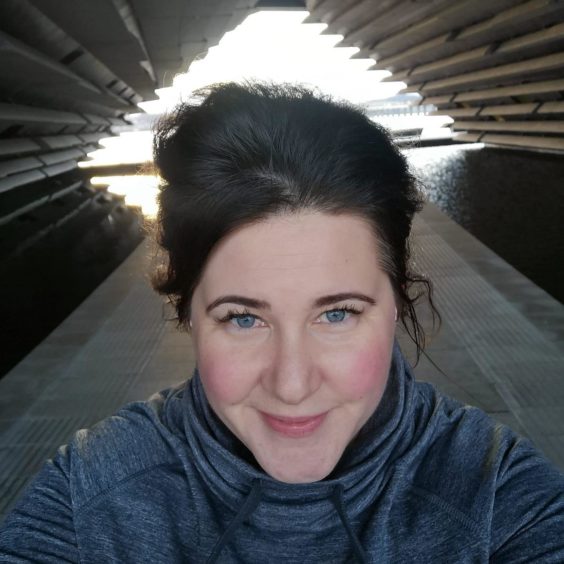
She admits: “Do I still have periods of low mood? Yes.
“I’ve just spent two days on my sofa with a lot of negative thoughts but I allow myself those times because we are all human and we all have them.
“There are several things that keep me well. Firstly, being outdoors and being in nature. When we get outside we are a bit more grounded.
“There are scientifically proven physical benefits such as vitamin D but there is also a peace that you don’t have when you are lying on your bed all day.
“I also focus on the power of my thought, which I learnt through meditation and mindfulness because I learn to observe my thinking. When we learn to observe our thinking we learn to direct our thinking to more helpful things.
“I still have negative thoughts – of course I do, don’t we all?
“I will be in work and somebody will criticise something I have done. The difference is now that now because I have slowed my mind, due to mindfulness and meditation, I am actually able to observe the thoughts that come up to me.
“What will happen is that someone will make a criticism and I will either think ‘that’s your opinion’ or, ‘yes, you’re right, it’s something I can improve on’.
“Whereas before I would have probably gone down a ‘well that’s it, I am no good at my job’ type thinking. And that’s not helpful.
“For meditation you don’t need to sit on a pillow, or chat, or do anything like that. Meditation is just slowing your mind down.
“We can do that on a walk, or any form of exercise, playing a musical instrumental, having a bubble bath, baking a cake – anything where you are slowing your mind and you become more aware of your thoughts.
“And when you are aware of your thoughts it’s much easier to be able to redirect them to something more helpful or to realise when you are thinking something that really isn’t that helpful at all, which is quite often the case.”
Outdoor challenge
Cheryl admits that she finds going up hills and Munros physically difficult but that hasn’t stopped her aiming high.
Her first Munro was Ben Klibreck in Sutherland, aged 23, and in 2009 she was six miles shy of completing the longest version of Maggie’s Monster Bike and Hike.
More recently, in October 2019 she walked the West Highland Way and then the Great Glen Way in March 2020.
In May, she is planning her biggest challenge yet – the Highland Trail 550, which involves more than 16,000m of climbing in the north-west Highlands.

Cheryl has set up a JustGiving page, with funds raised going to the Scottish Association for Mental Health (SAMH). She hopes to raise as much as £5,000.
SAMH works in more than 60 communities to provide mental health social care support, services in primary care, schools and further education, among others.
The charity says these services, together with its national programme work in See Me, respectme, suicide prevention and active living informs its policy and campaign work to influence positive social change.
Cheryl has earmarked May for the challenge, but this depends on the lifting of Covid restrictions.
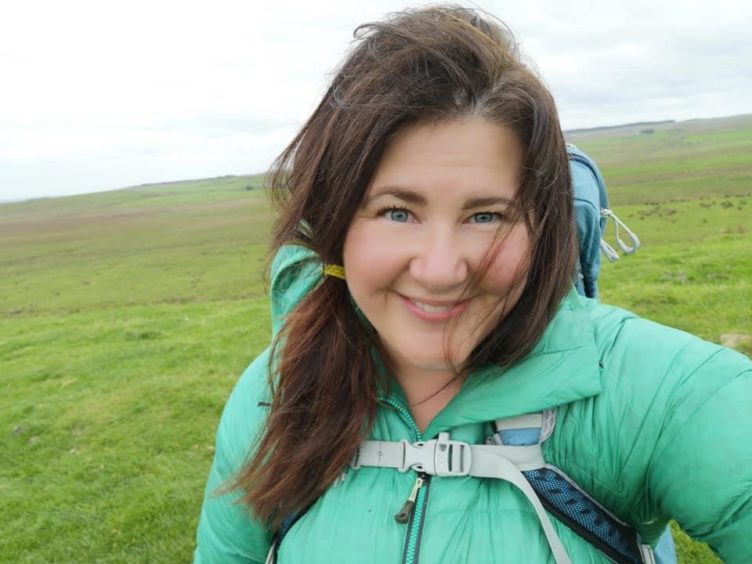
Cheryl hopes she can inspire others to venture out of their comfort zone for the sake of mental health.
She says: “I am going to attempt to walk 550 miles in May. You don’t need to do something as extreme as that. It just needs to be something that pushes you.
“That helps because it gives you a focus and realisation that you are capable of so much more than you may think. Every single one of us.
“Give yourself a challenge, and it can be something simple. When you’re feeling really low it can be getting out of bed and getting yourself dressed.
“If you’re in a better place run that marathon you’ve always wanted to. Take up a new hobby, bake a perfect cake. It doesn’t matter how it looks. It’s irrelevant.
“It will make such a difference and make you realise what you are capable of, so when you are having a difficult time you might think you are capable of this and that. And those things keep us in check.”
Covid shock
Cheryl’s training for the Highland Trail 550 was disrupted by a bout of Covid-19 in late October.
She picked up the virus while working in Ninewells and ended up back in the hospital as a patient when her breathing became impaired.
She recalls: “It was a really humbling experience to be on the other side and to be cared for.
“I work with people with asthma and COPD [chronic obstructive pulmonary disease] and tell them to take a deep breath but they actually can’t.
“For me it was like trying to breathe through glass. There were moments when I didn’t feel as if it was going to get better.”
After being discharged she was required to self-isolate at home for a fortnight.
“After I left hospital I had to be on my own in my flat for two weeks so physically and mentally it was a big challenge.
“I had worked through the pandemic but got to realise what it was like to be at home so mentally it was difficult.
“My team are often stressed out but I tell them the one thing we have got is our jobs and identity, which has been taken from some people
“People who have never had any problems before are now experiencing anxiety and depression.”
Life coaching
In October last year Cheryl posted a 15-minute video on Facebook, summarising her mental health and publicising her planned charity hike.
She says the post, which has been viewed more than 1,500 times and attracted 125 likes and 99 comments, has inadvertently given her the platform to become a life coach.
The friend requests have since been flying in and, at the time of writing, she has more than 2,200 friends in total.
She says: “Off the back of my story people from all over the world have reached out to say I had helped them.
“Maybe it is because they felt they were going through something tough and they saw I had been open and honest about mental health.
“I am almost creating a business off the back of it, in terms of being a life coach to those who need help.
“It feels as though I am meeting the right people at the right time.
“If you’d told me a year ago I’d be doing this I’d laugh you out of town. It’s amazing.”
